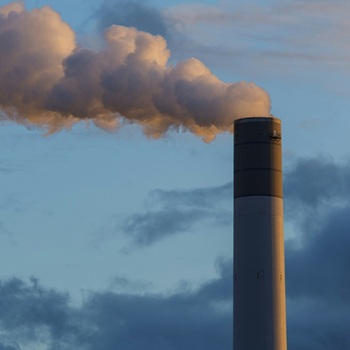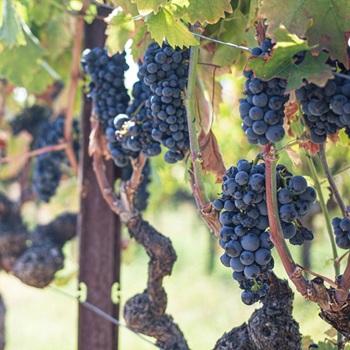Driving across the rolling farming country of northern and central France, as my wife and I have just done, you might think that French arable farmers have never had it so good. Grain prices are high and the landscape as far as the eye can see is bright yellow with rapeseed and brilliant green with wheat, barley or potatoes, the very picture of a healthy agriculture.
It’s not really healthy, of course. Unless rain falls within the next week or so those rolling hectares will lose their bloom. Drought has hit the cereal regions of the UK, France, Germany and Poland, which together account for two-thirds of European grain production. Already forecast yields for wheat, barley and rape are down by 10-20 per cent, while the prospect of a dry summer threatens a greater shortfall and a further escalation in food prices, which have already gone up by 30 per cent since March.
This is bad news for Europe. High grain prices mean rising costs for milk, meat and egg production, as well as bread, beer and other cereal-based foods, putting more strain on shop prices. Food price inflation has a direct political impact which will put additional pressure on EU governments at a time when household spending is already squeezed and unemployment levels remain high.
In France 42 départements have declared water control restrictions. The Polish government has been pressing the European Commission to raise the support level for wheat in support of its arable farmers – a plea which was rejected in the recent farm ministers council.
There are unexpected consequences. As rivers levels fall or even run dry I see that French nuclear power stations, which rely on river water for cooling, may have to cut back on generation capacity.
The global picture is no more comforting. With the US also suffering from drought there is little prospect of recovery in world supplies, let alone the building of stocks, during 2011. China is also affected. Russia and the Ukraine are the only northern hemisphere producers which have decent prospects for grain production this year.
The political implications are far-reaching. All those countries which depend on grain imports to feed their people, which include most of the Maghreb and much of the Middle East, will face a further food price crisis at a time when their political systems and their economies are undergoing revolution.
A succession of climatic disasters in the US may lead to recognition in the United States that climate change is happening and that something must be done, although it is a big step to acknowledge that human activity is the driver. As for Europe, after the driest and warmest April in parts of our continent since records began the argument that the climate is undergoing fundamental change seems incontrovertible.
Michael
3 Comments
Find Out More
-
Decoding the EU-India FTA: Chemicals & Sustainability
February 26, 2026
-
Decoding the EU-India FTA: Agri-food & Alcohol
February 25, 2026
-
Decoding the EU-India FTA: Automotive & Metals
February 24, 2026



May 27, 2011 | 12:22 PM
As you imply Nigel, people's general dismissal of scientists and their predictions is a huge problem, but it strikes me that the evidence is beginning to force itself directly upon all of us. One summer may not make a swallow (to coin a phrase) but as the climate becomes more volatile the need for action must bear heavily on both individuals and their governments.
June 06, 2011 | 2:18 AM
I cannot agree more with the article, and both of your comments. I am in my younger 20's and will be soon studying environmental sciences. I have constantly been trying to find good information sources that recite evidence and data to back up global warming claims. As of late, with the recent record breaking tornadoes and flood in North America, my drive for information and spreading of knowledge has increased dramatically. I feel I am almost at the point to start preaching, but not quite yet. It's sad to see that our society has such a deep rooted fear of change, that people are not willing to even ponder the thought that fossil fuels need to be ditched for a clean alternative. The Global Warming issue has such simple logic to it. It's just the data is so complicated and intertwined, its extremely difficult to relate everything to the whole picture. But, I've come to the personal conclusion that the Earth, the environment, and the atmosphere, are extremely delicate natural phenomenons. It hasn't taken more then 100 years for us to throw it off kilter. We have hurt the Earth's lungs, and we have caused change. This change is now our chance to rise to a brand new era of environmental respect, sharing, and an infinite ability to progress forward. The Earth will hit us hard, and it will hit us fast, forcing people to respect the power of the amazing planet we live on. If we choose not to respect our very home which we were able to develop on up till this point, we are not worthy of this habitat and shall meet our extinction. Two paths. I'm pretty sure instinct is all that will be needed to guide us towards prosperity.
May 26, 2011 | 5:11 PM
Thanks so much for writing this. I've been monitoring this very worrying situation for a couple of months now, reading in particular the commodities websites, such as agrimoney.com, which of course reflect the paradoxical phenomenon that shortages raise prices -- which can be good for brokers and producers in the short term. But aside from these websites, there's been surprisingly little coverage of this extraordinary spring drought in the press or other media. There have been a few reports now, mainly on the BBC, but also in the FT and Telegraph, of the impact on farmers in the UK. But no one is mentioning climate change. The whole brouhaha over the leaked emails and over the IPCC getting a couple of things wrong seems to have made commentators very nervous of making any connection between extreme weather and man-made climate change. This is extremely regrettable. Of course there will always be doubts in a field that is so exceedingly complicated. But the basic science is not altered. Carbon dioxide is the second most impactful greenhouse gas, after water vapour, in terms of its concentration in the atmosphere and its effect, and we have increased its concentration. That is just basic physics/chemistry and the principles have been known for nearly 200 years! Increasing its concentration, at the most naive level, will at least affect temperature. The most persuasive facts are these. Carbon dioxide is less than 0.1 per cent of the atmosphere -- and yet it plays up to a 25 per cent role in making the planet habitable. Which is to refer to the fact that, without a greenhouse effect, the mean temperature of the planet would be about 16C below zero; the greenhouse effect puts that up to 14C above zero -- so we couldn't live without CO2, for sure. But just consider, that tiny proportion of the atmosphere -- less that 0.1 per cent, has a 25 per cent role in reversing that temperature out of freezing and into an equable average. The other riveting fact about the atmosphere, I think, is that, were the earth a football, the atmosphere would be as thin as a covering of paper. I would have guessed at least as thick as the peel of an orange, probably more, like about 1cm, but there it is -- only as thick as paper. Of course there are many other impacts on climate, from volcanoes to sunspots (and solar radiation is down at the moment). But let's invoke Occam's razor, and go with the simple thing we know -- that we are massively increasing concentration of the second most important greenhouse gas -- and that, with the political will, we can reduce that output of CO2. I would hope that one effect of this awful drought across Europe will be to concentrate minds, and to get people asking why the weather has gone so extreme. I would hope too, that some scientists will come out of the woodwork and stand up for good science. I've heard it said that the majority of the sceptics are not scientists -- and I think this speaks for itself. All good science is sceptical, but let not scepticism overshadow the solidity of the work that has been done on climate. In the end, even if it is shown beyond doubt that increasing CO2 has no effect whatever on the climate, then, if we have cut emissions, no harm will have been done, except to the world's economies. But if, in the end, the reverse is shown to be the case, ie, that increasing C02 does indeed warm the climate, and we have not cut emissions, then it may be too late to preserve anything like a stable climate in which we can be fed and prosper. The precautionary principle has to be the answer, whatever our beliefs may be about the science. To restate: cutting emissions may hit economies but save the climate. Not cutting emissions may preserve economies in the short term, but send the climate into meltdown. Still not convinced? Imagine this. You are on holiday in a country of many deep forests. You hear shooting. You stop the car and ask what's going on. One person says, Oh, it's just a pheasant shoot. Nothing to worry about, they only shoot pheasants. Another says, well, you know, I'm not so sure, there's quite a lot of evidence that there are gangs killing villagers and tourists for the hell of it. You ask around, but keep getting conflicting news. What do you do? Keep going, on the chance that it really is just game shooting? Or do you say, well, even though it ruins the holiday, we're going home -- it's just too big a risk, getting killed for the sake of enjoying these forests. I know that a lot of the sceptics feel very strongly about this. They feel that governments are being duped by the wind farming lobby. Or they feel that government officials are doing nicely thank you, jetting around the world going to conferences. Or they think you can never trust science, or governments and that the world will sort itself out quite nicely. And that's all fine. Those are opinions, and opinion is free. But carbon dioxide levels are up from 275 parts per million pre-industrial age to 385ppm now and it is just possible, just possible that that could tip the climate into meltdown. I would say to the sceptics, that the best thing to do is to hold your nose, and say, OK, just in case the scientists are right, let's cut emissions. It's like the people in the forests -- better safe than sorry.